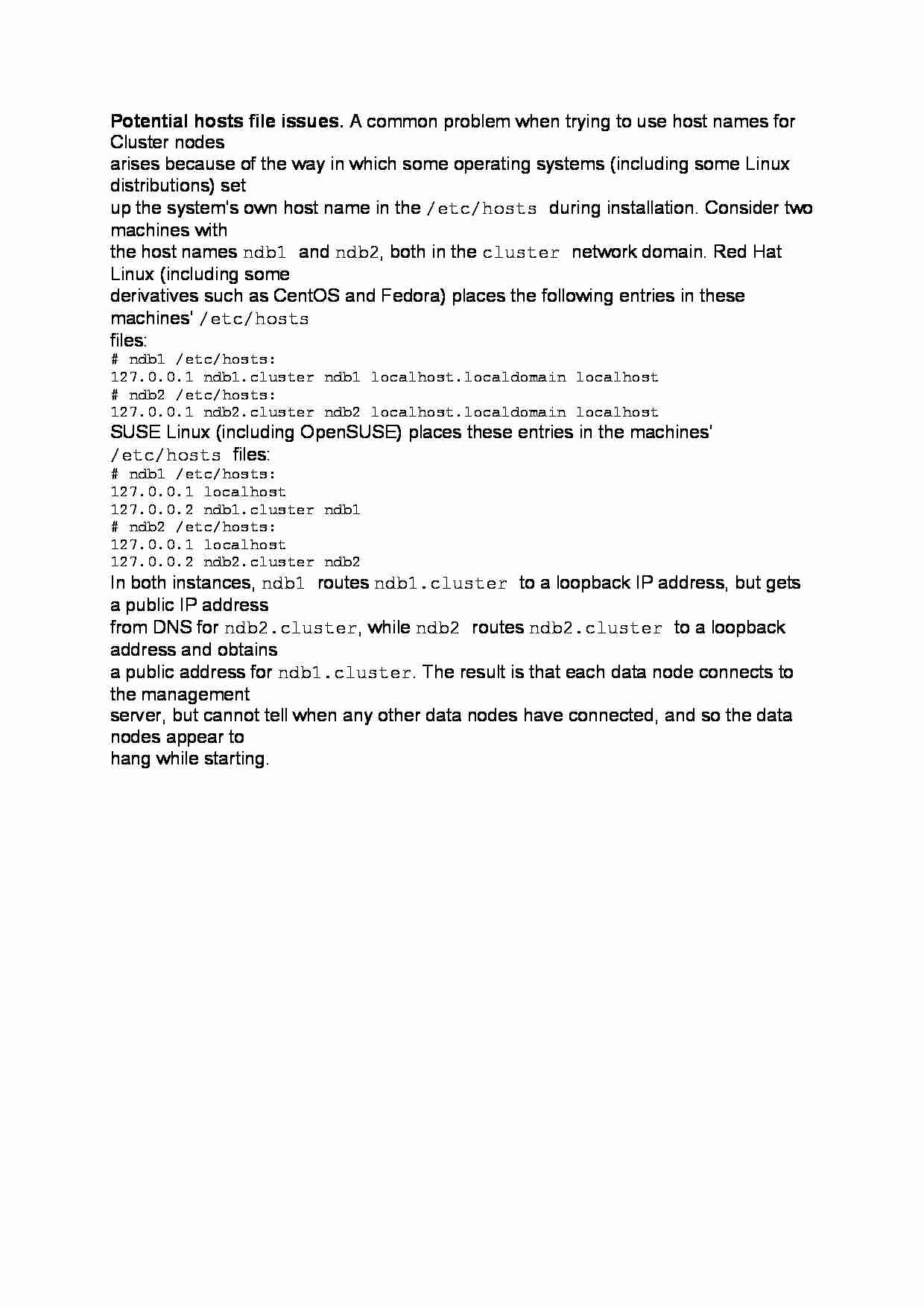
Potential hosts file issues. A common problem when trying to use host names for Cluster nodes
arises because of the way in which some operating systems (including some Linux distributions) set
up the system's own host name in the /etc/hosts during installation. Consider two machines with
the host names ndb1 and ndb2, both in the cluster network domain. Red Hat Linux (including some
derivatives such as CentOS and Fedora) places the following entries in these machines' /etc/hosts
files:
# ndb1 /etc/hosts:
127.0.0.1 ndb1.cluster ndb1 localhost.localdomain localhost
# ndb2 /etc/hosts:
127.0.0.1 ndb2.cluster ndb2 localhost.localdomain localhost
SUSE Linux (including OpenSUSE) places these entries in the machines' /etc/hosts files:
# ndb1 /etc/hosts:
127.0.0.1 localhost
127.0.0.2 ndb1.cluster ndb1
# ndb2 /etc/hosts:
127.0.0.1 localhost
127.0.0.2 ndb2.cluster ndb2
In both instances, ndb1 routes ndb1.cluster to a loopback IP address, but gets a public IP address
from DNS for ndb2.cluster, while ndb2 routes ndb2.cluster to a loopback address and obtains
a public address for ndb1.cluster. The result is that each data node connects to the management
server, but cannot tell when any other data nodes have connected, and so the data nodes appear to
hang while starting.
... zobacz całą notatkę



Komentarze użytkowników (0)